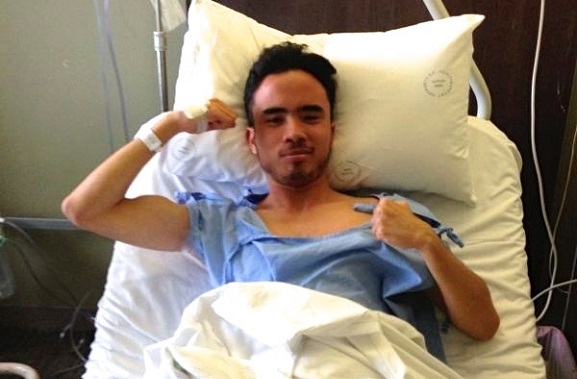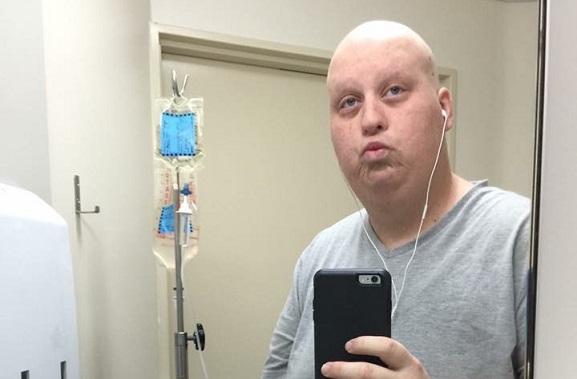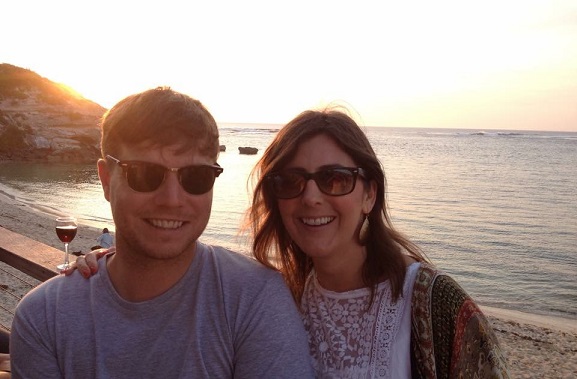3 Young Adult Survivors Open Up About What It’s Like To Be a Man Affected By Cancer
We asked a few members of the You Can Connect community to weigh in on what they want others to know about what it’s like to be a man affected by cancer. Here are their stories.
Adry, 22, Testicular Cancer Survivor

When I was diagnosed with testicular cancer at 17 years of age, I thought I knew what being a man meant. I thought it meant I had to be “strong”, which meant not revealing the angst I was experiencing as a result of my diagnosis because I didn’t want any of my friends or family to worry about me. I thought it meant I couldn’t accept help from my teachers to catch up on all the schoolwork I missed while I went through chemotherapy and radiotherapy, because being a “man” meant I had to do it all on my own. This was ultimately an unproductive and unhealthy mentality to have – it made me distant from my friends and family and also triggered regular bouts of anxiety.
What I failed to realise when I was initially diagnosed, is that it takes enormous strength to express your vulnerability and seek support for it, whether from your friends, family, trusted adults or professionally, such as from a psychologist or counselor. Now, at 22 years of age and 5 years in remission, I make a point to regularly have open and honest conversations about the lingering effects of my cancer journey on my mental health. By being as open and honest as I can to my friends and family, I know I’m taking the right steps towards a healthier and more rewarding life, and being the best “man” I can be for them.
What I want others to know about what it’s like to be a man affected by cancer is that cancer will significantly challenge and in turn, redefine, what you think it means to be a “man”.
Connect with Adry here.
Frazer, 26, Osteoblastic osteosarcoma Survivor

When I first discovered the lump I wasn’t at all worried because I get bruises and bumps all the time from working in theatre. But when it had grown to the size of a golf ball in about a week I started to get worried, so I booked in with a doctor. Getting the ultrasound and bloods was fine because they are just the normal things doctors do when you present a lump. But as soon as he sent me to get a “fine needle biopsy”, I thought this could really be serious, and the lump hadn’t stopped growing.
I lost my hair about 2 weeks after my first chemo dose. The losing of the hair didn’t really phase me because I knew that was a strong likelihood. The biggest problem I had was that it wasn’t my choice, it was almost as if my body wasn’t mine anymore. I had no control over it- the doctors and the drugs did. After a while of it falling out I just wanted to shave all of it off but I was in Brisbane without money and clippers so I had to wait until I was back in Rockhampton and my brother shaved it for me. It was at that point I saw the difference between shaving it yourself and shaving it because all your hair was falling out. You just look sick.
I want other men to know that it’s scary, and it’s ok to be scared every now and then. Drop your manly facade. The doctors and nurses won’t judge you and they need to know how your really feeling to treat you. Go to the doctor about anything worrying you. You may lose your hair but that’s fine, you get to rock the bald look for a while.
Connect with Frazer here.
David, 35, Testicular Cancer Survivor

I want other people to know that being a man affected by cancer can knock your confidence, make you feel weak, and also alone!
Let people in and share with others what your going through, instead of doing the macho thing of saying I am OK and I am feeling good, even though you're obviously not! The weight of that burden off your shoulders finally allows you to get help but also help others and boost your confidence at the same time. I think that from an early age men feel like they have to provide protection to others around them, and by doing this they struggle to accept help for themselves, closing themselves off to help which they may need.
My advice would be to talk, ask for help and also be open to receiving help. It took me years after my treatment to finally allow other people in and help me. Once I had done this I regained the confidence and also the feeling of self worth.
Connect with David here.








We’re the people working behind the scenes to make You Can Connect the best it can be for you. We thought we’d make our own profile to introduce ourselves in case you haven’t heard of You Can. Back in 2010, Sony Foundation Australia launched You Can to address a gap in the medical system to support adolescent and young adults with cancer in Australia. We raise funds and build You Can youth cancer centres across the country to provide a space in hospitals that is just for young people to ensure care and support is tailored towards YOU, not children, and not old people, YOU. Feel free to drop us a line, we’d love to hear from you.